Ecology and Management of Invasive Riparian and Aquatic Plants
> Programme1992 (UK)
What is now known as the EMAPi series of conferences was initiated in 1992 at a workshop held at the International Centre of Landscape Ecology (ICOLE), Loughborough University, UK, organized by Max Wade, Lois Child and John Brock under the name “Ecology and Management of Invasive Riparian and Aquatic Plants”. The workshop, attended by 21 participants from eight countries, focused on problems related to the invasion of water courses and other habitats in Europe and the USA by invasive alien plants (de Waal et al. 1994). In terms of historical context, 1992 was a key date for raising global concern about environmental protection and biodiversity issues. From the perspective of biological invasions, an important step was the adoption of the Convention on Biological Diversity (CBD; Shine et al. 2000). At the end of the Loughborough workshop it was decided by participants that under these circumstances and with the growing magnitude of the problem of invasive species in mind it was plausible to transform the originally intended one-time event into regular gatherings with the second one to be held one year later in the Czech Republic.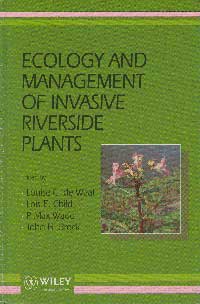
de Waal et al. 1994
Plant Invasions: Theory and Applications
> Programme1993 (Czech Republic)
The second conference was organized by Petr Pyšek and Karel Prach at the Institute of Applied Ecology of the Czech Agricultural University in Kostelec nad Černými lesy, Czech Republic, under the name “Plant Invasions: Theory and Applications” (Pyšek et al. 1995) in September 1993. There were 36 participants from nine countries who delivered 25 presentations and for the first time there were not only talks but also posters. At the conference it was decided that the series would move to the USA after John Brock offered to host it at his home institution in USA, and agreement was also reached on a biennial interval between events.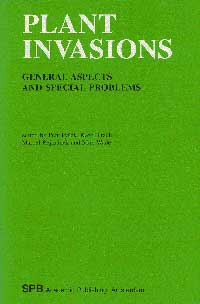
Pyšek et al. 1995
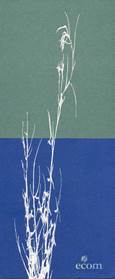
> Programme
1995 (USA)
The next event, “Ecom3 – Third International Conference on the Ecology and Management of Invasive Riparian and Wetland Plants”, was organized by John Brock at Arizona State University, Tempe, USA, in October 1995 (Brock et al. 1997). Forty-one participants from seven countries delivered 29 presentations. An informal structure started to be formed, i.e. the EMAPi board consisting of organizers of previous meetings. The Tempe conference was the first one that used a logo.
Brock et al. 1997
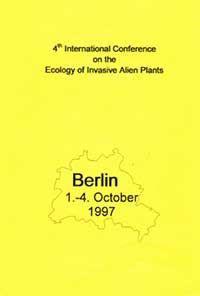
> Programme
1997 (Germany)
The series returned to Europe for the next three conferences, starting with the “Fourth International Conference on the Ecology of Invasive Alien Plants” hosted by Uwe Starfinger at the Institute für Ökologie und Biologie, Technische Universität Berlin, in October 1997 (Starfinger et al. 1998). Compared to the previous meeting the number of participants doubled to 82 from 15 countries. The program consisted of two days of presentations, with a large space provided for 31 posters out of a total of 50 presentations.
Starfinger et al. 1998
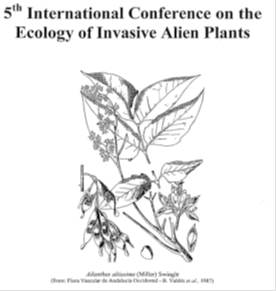
> Programme and Book of abstracts
1999 (Sardinia, Italy)
The next EMAPi, under yet another name, “Fifth International Conference on the Ecology of Invasive Alien Plants (ICEIAP)”, was the first one held on an island (and still one of only two so far, together with the Hawaiian EMAPi in 2015), reflecting the notion that the threat posed by invasive alien plants is particularly severe for islands (e.g., Dawson et al. 2017; van Kleunen et al. 2015). The conference was hosted by Giuseppe Brundu and Ignazio Camarda at the Department of Botany and Vegetation Ecology of the University of Sassari in La Maddalena, Sardinia, Italy, in October 1999 (Brundu et al. 2001). It was the first time that the number of countries of the delegates exceeded 20, and five continents were represented. From the viewpoint of the history of EMAPi it was remarkable not only due to by far the highest attendance of 123 participants with 118 papers being delivered, but also because it was the first time that a keynote talk was delivered at EMAPi conferences. This was by Sandro Pignatti on Mediterranean invasive plants.
Brundu et al. 2001
Ecology and Management of Alien Plant invasions
> Programme2001 (UK)
The acronym EMAPi for the conference title “Ecology and Management of Alien Plant invasions” was first used at the 6th event when the series returned to the UK, organized for a second time by Lois Child and again at Loughborough University (Child et al. 2003). Most participants travelled to the venue on 11 September 2001, some of them learning about the 9-11 terrorist attack in New York as they arrived or enroute. The conference was attended by 81 delegates from 22 countries, and besides 61 papers delivered it convened a discussion group chaired by Max Wade devoted to Japanese knotweed (Fallopia japonica).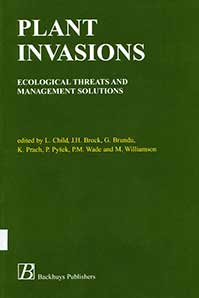
Child et al. 2003
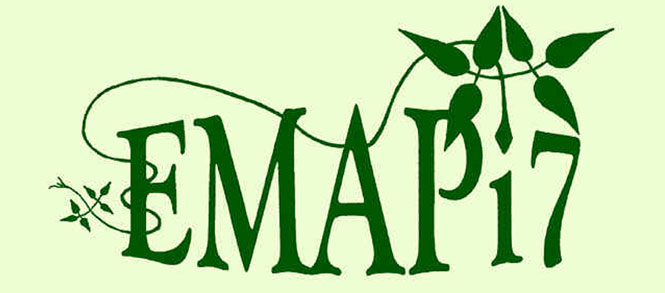
> Proceedings
2003 (USA)
The conferences prior to the 7th EMAPi were run on relatively informal basis, with a core of committed individuals forming a scientific committee being in charge of preparing the programme and proceedings and reviewing the submitted constributions. The conference in Fort Lauderdale, USA, was different. It took place at Wyndham Bonaventure Resort in November 2003, organized as “7th International Conference on the Ecology and Management of Alien Plant Invasions (IPINAMS-EMAPi)” in conjuction with the “Invasive Plants in Natural and Managed Systems: Linking Science and Management” conference of the Weed Science Society of America (WSSA) and the Ecological Society of America (ESA), and backed by the Federal Interagency Committee on Management of Noxious and Exotic Weeds (FICMNEW). The whole event attracted over 700 participants, bringing together an international cross-section of scientists, managers and practitioners. The EMAPi part was organized by Tony Koop, Carol Horvitz and Bob Doren and for the first time the papers from the conference appeared as proceedings in a journal, Weed Technology (Jackson 2004).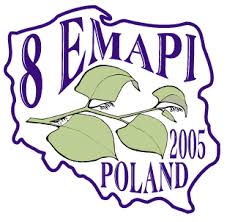
> Programme and Book of abstracts
2005 (Poland)
The “8th International Conference on the Ecology and Management of Alien Plant Invasions” returned to Europe and took place at the Silesian University in Katowice, Poland, in September 2005. Organized by Barbara Tokarska, it attracted almost 150 participants from 28 countries and the same number of presentations, and it included 107 posters, these figures represented the highest achieved up to that point. Interestingly, the number of participants has not dropped below hundred since then. After six years EMAPi welcomed keynote speakers once again, a tradition that has been maintained. Another feature of the conference was that the resulting book of proceedings with Backhuys Publishers was the last one in the EMAPi series (Tokarska-Guzik et al. 2008).
Tokarska-Guzik et al. 2008
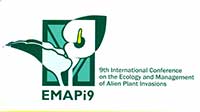
> Programme and Book of abstracts
2007 (Australia)
After the Katowice meeting, EMAPi went overseas for the next two events, the first being in Perth, Western Australia, where Sandy Lloyd hosted the “9th International Conference on the Ecology and Management of Alien Plant invasions” at the Hyatt Regency, Perth, in September 2007. With 212 participants it was the second most attended EMAPi in its history, and also the first one with parallel sessions. This arrangement resulted in the so far highest number of talks (139), with 75 posters giving the highest number of presentations as well (214). The conference was the first one without a proceedings, however, an associated Weed Risk Assessment Workshop yielded a paper (Gordon et al. 2010)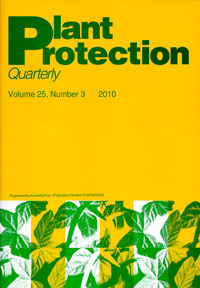
Gordon et al. 2010
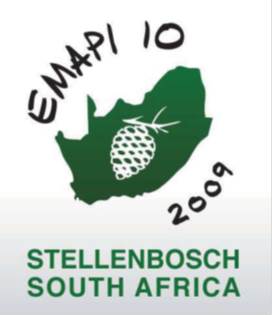
> Programme and Book of abstracts
2009 (South Africa)
The “10th International Conference on the Ecology and Management of Alien Plant Invasions (EMAPi 10)“ was the first conference in the series held in Africa. It was organized by David Richardson of the DST-NRF Centre of Excellence for Invasion Biology (CIB), Stellenbosch University, South Africa, at the Spier Estate near Stellenbosch in August 2009 (Alexander and Pauchard 2009). The number of participants was 229, exceeding that of the previous conference and the 32 countries represented by the delegates was the highest number in EMAPi history. The proceedings, consisting of selected papers, were published in the journal Biological Invasions (Richardson et al. 2010).
Richardson et al. 2010
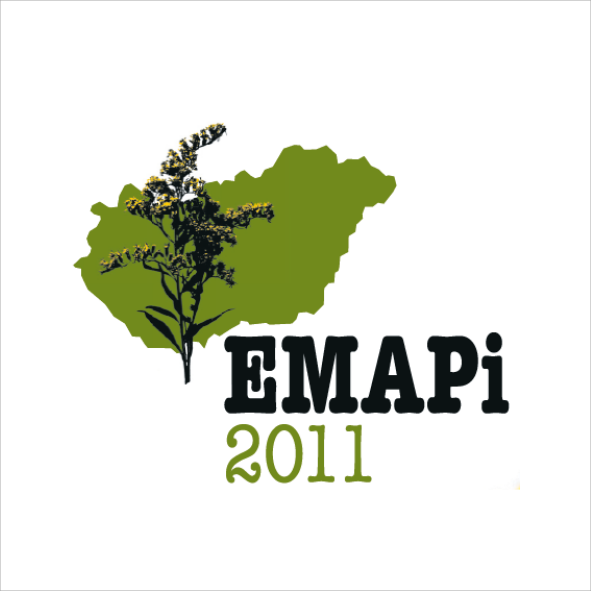
> Programme and Book of abstracts
2011 (Hungary)
With the “11th International Conference on the Ecology and Management Alien Plant Invasions: Bridging the Gap between Scientific Knowledge and Management Practice” the series returned to Europe where it took place at the Cultural and Youth Centre of Vas County, Szombathély, Hungary, in September 2011. The organizers, Zoltán Botta-Dukát and Lájos Balogh, decided to return to the tradition of the first eight conferences and arranged only one session for all the talks. With participants from 34 countries, this conference set the new maximum for the international scope of EMAPi.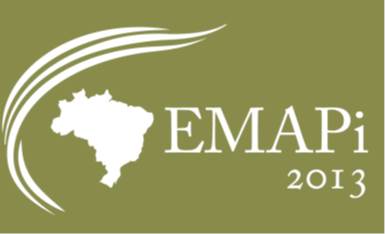
> Programme and Book of abstracts
2013 (Brazil)
The next event, for the first time in South America, took place under the name “EMAPi 2013: 12th Reunion on Ecology and Management of Alien Plant Invasions”. Held in Pousada dos Pirenéus, Pirenópolis, Goiás, Brazil, in September and was organized by John Du Vall Hay of the Departamento de Ecologia, Universidade de Brasilia. It used concurrent sessions and was attended by 152 participants from 24 countries. For the first time there were as many as eight keynote speakers.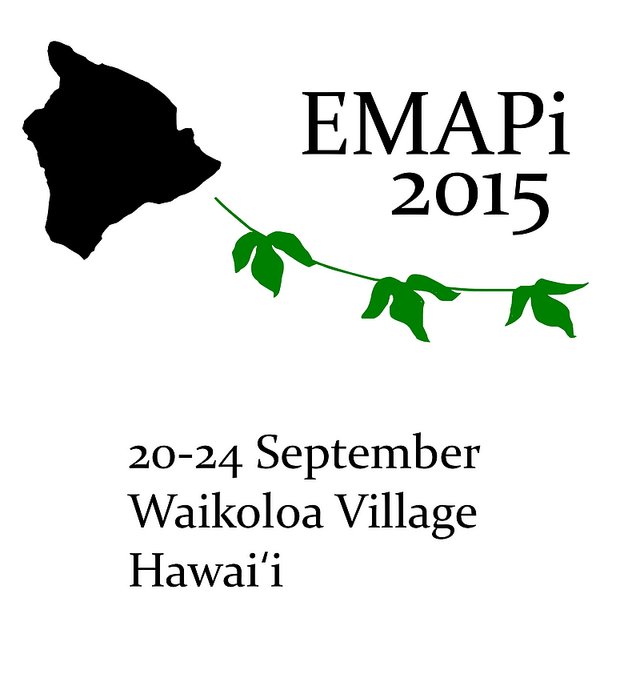
> Programme and Book of abstracts
2015 (Hawaii)
The second EMAPi conference that brought the delegates to an island, one of the most relevant in terms of plant invasions, was the “EMAPi 13 International Conference on Ecology and Management of Alien Plant Invasions” organized by Curtis Daehler of the University of Honolulu at Waikoloa Village, Hawaii, in September 2015 (Daehler et al. 2016). Despite the geographical distance, the very attractive location, both in terms of nature and science, resulted in the highest number of participants of all EMAPi conferences to date, There were 246 delegates who delivered, in four concurrent sessions, 147 oral presentations accompanied by 73 posters.
Daehler et al. 2015
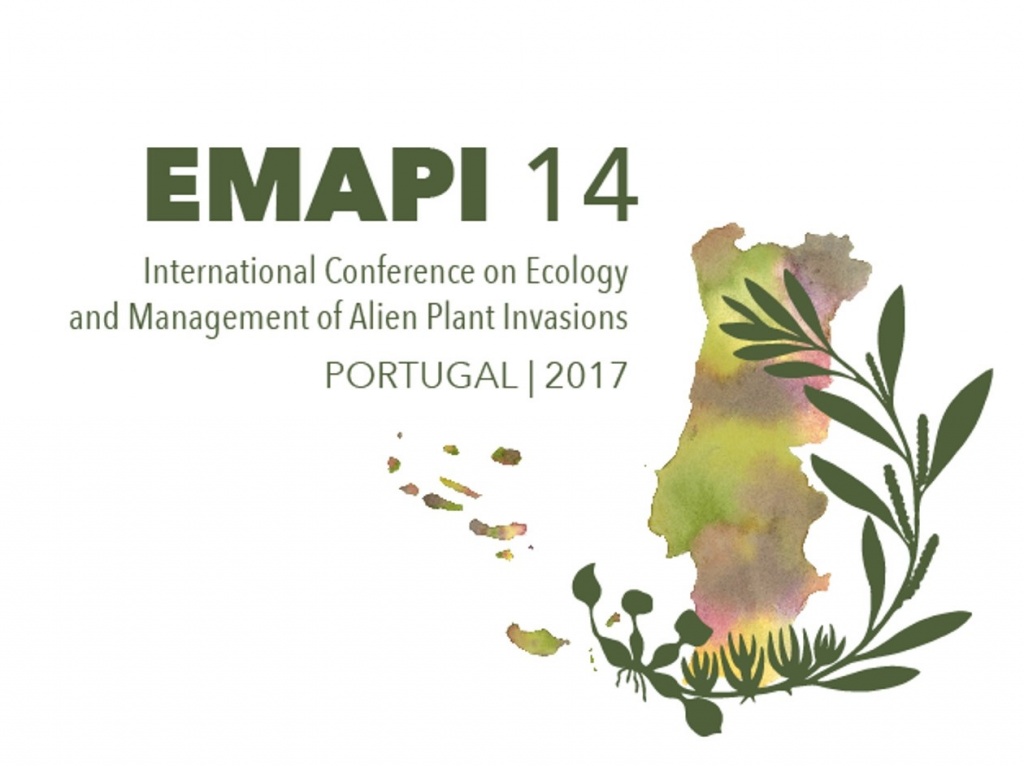
> Programme and Book of abstracts
2017 (Portugal)
The latest EMAPi conference, "14th International Conference on the Ecology and Management of Alien Plant Invasions: Syntheses, Challenges and New Opportunities" was hosted by Cristina Máguas, University of Lisbon, in Portugal in September 2017. With 189 participants the conference, held at Sana Lisboa Hotel in Lisbon, was the most attended European EMAPi in its history, and with the participants from 35 countries the most attended of all by this criterion. This was the first conference taking place in Europe after the 2015 of the Regulation EU n. 1143/2014 came into force which featured in a number of presentations.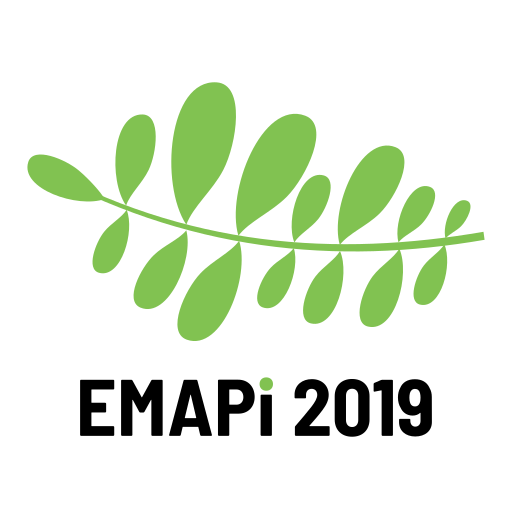
> Programme and Book of abstracts
2019 (Czech Republic)
The conference brought together scientists, managers and policy makers from around the world involved in plant invasions, who explored ways to face global and regional challenges imposed by alien plant invasions.
> Book of abstracts